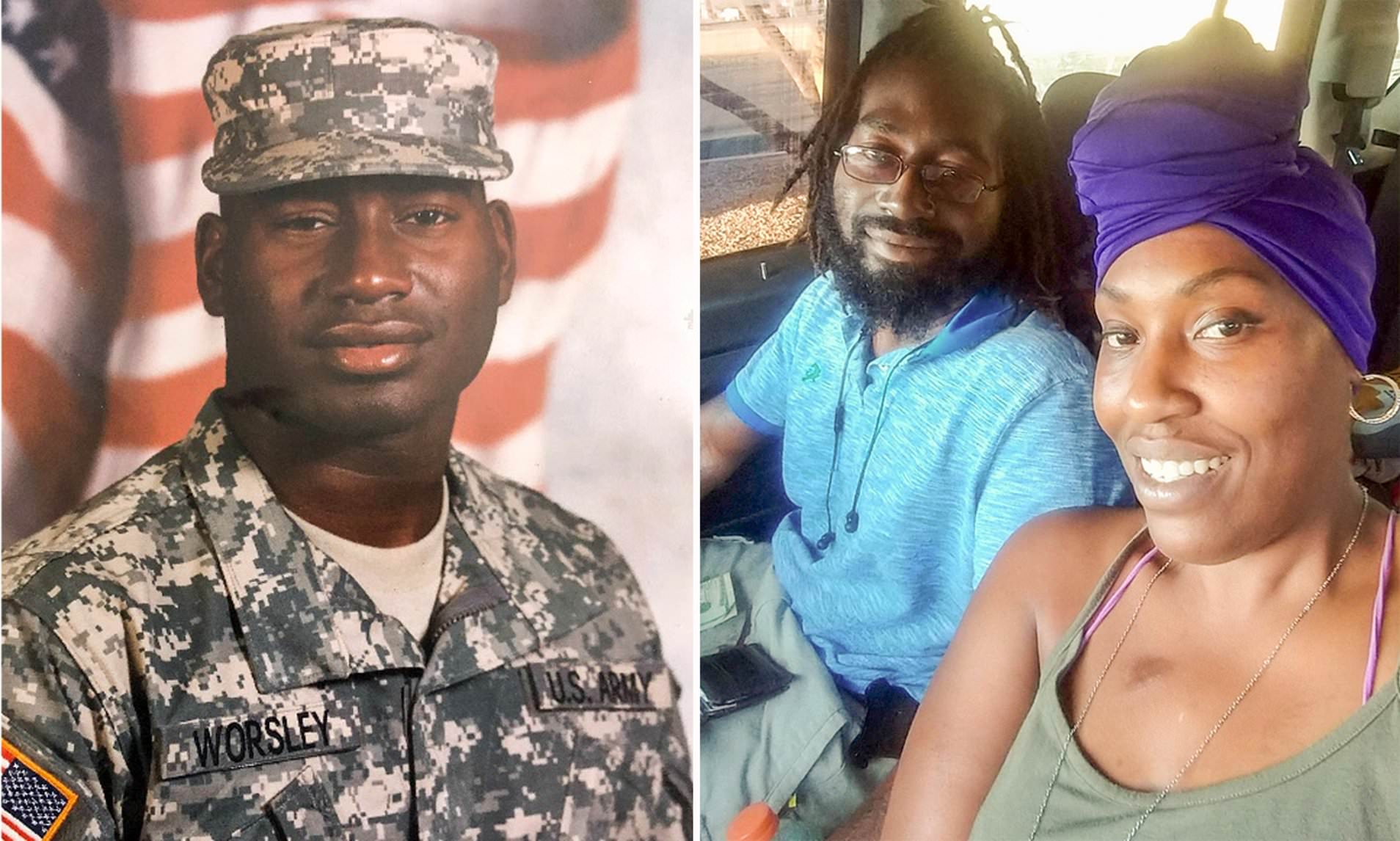News
Disabled Iraq War veteran faces 5 years in Alabama jail for possession of legal cannabis

(TMU) – A disabled veteran of the Iraq war is facing five years behind bars for possession of cannabis after his release was denied by an Alabama judge who cited the man’s criminal record.
Sean Worsley, who suffers from post-traumatic stress disorder (PTSD), was slated to move to a community supervision program and receive therapy, housing, and community services rather than continue serving his sentence in state prison.
However, on Wednesday Alabama circuit judge Samuel Jenkin denied the motion, citing past criminal offenses and alleged past attempts to flee the state.
Supporters describe Worsley as “a fragile, disabled man who sacrificed his health and youth to serve his country.” He received the Purple Heart for wounds sustained in Iraq while disabling bombs and retrieving the body parts of his dead comrades. He was deployed in Iraq during one of the most intense stages of counterinsurgency efforts of the war, during the 2006-2007 “Surge.”
Sean Worsley, a disabled Black veteran who earned a Purple Heart for service in Iraq, was sentenced to 5 years in prison after driving through Alabama with legally prescribed medical marijuana. We must end this madness. https://t.co/en98Yj0Wsl
— Rep. Dean Phillips ?? (@RepDeanPhillips) July 14, 2020
After sustaining a traumatic brain injury, he received a 100 percent disability rating from the Department of Veterans Affairs and was diagnosed with PTSD expected to endure for the remainder of his life and a need for “maximal assistance” in basic day-to-day activities.
Worsley was arrested in August 2016 for possession of cannabis while driving through Alabama from his home state in Arizona, where he has a legal prescription for the drug. He now could face five years incarcerated in one of the most dangerous prisons in the U.S.
The decorated veteran and his wife, Eboni, were en route to North Carolina to help his mother repair major hurricane damage to his mother’s home. While stopping for gas, Worsley caught the attention of an officer who noticed the man playing air guitar and clowning around to entertain his wife.
When the officer asked to search Worsley’s vehicle, he gladly complied and event volunteered that he had medical cannabis along with a prescription. Upon finding a grinder, digital scale, and a little over a quarter of an ounce of cannabis, the officer assumed that Worsley was a drug dealer. The couple was arrested and Worsley was charged with possession “for other than personal use,” a felony in Alabama.
After the arrest, the Worsleys returned to Arizona where they were plunged into an ordeal of joblessness and rendered homeless due to the criminal charges in Alabama.
Eboni, who has now moved to Alabama to maintain her visitation rights with Sean as he awaits incarceration, said that she now feels lost and adrift despite the strong show of support from veterans’ groups, human rights advocates, local lawmakers, and criminal justice reform organizations. This included over $100,000 in funds raised online from 2,000 donors that helped pay legal fees and relocate Eboni to a rented home in Birmingham.
“At this point, the family and I are really starting at ground zero. We have to find new lawyers,” she explained. “We have to find appeal attorneys and an attorney who will go in and speak to him.”
Advocates at Alabama Appleseed, a progressive nonprofit organization, had believed they had a bulletproof case for Worsley to be moved to a community supervision program that included stable housing, an employment opportunity with a local construction, design, and manufacturing firm, and ongoing therapy.
The Alabama Department of Corrections also deemed Worsley worthy of the transfer, while the initial sentencing judge also approved of him being transferred to Community Corrections with the Veteran’s Treatment County.
However, on Wednesday district court Judge Junkin flatly denied the request.
“Because the Defendant has fled this jurisdiction both times he was released, failed to comply with any condition of bond or probation and has 5 felony convictions, including one he received while on probation from this Court’s sentence, this Court finds that the Defendant is not a suitable candidate for placement in the Community Corrections Program,” Junkin wrote. “Therefore, the request is DENIED.”
Leah Nelson, a lead researcher with Alabama Appleseed, describes Worsley’s ordeal as tragically typical of the draconian system of criminal justice in the state.
“In Mr. Worsley’s case, Alabama’s justice system worked exactly as it was designed to,” Nelson said.
“The arresting officer, judge and prosecutor each exercised discretion at various points, but ultimately, what happened to Mr. Worsley is a predictable outcome of Alabama’s grossly punitive drug laws and the United States’ refusal to meet disabled veterans where they are or provide them with the services they need.”
Typos, corrections and/or news tips? Email us at Contact@TheMindUnleashed.com
